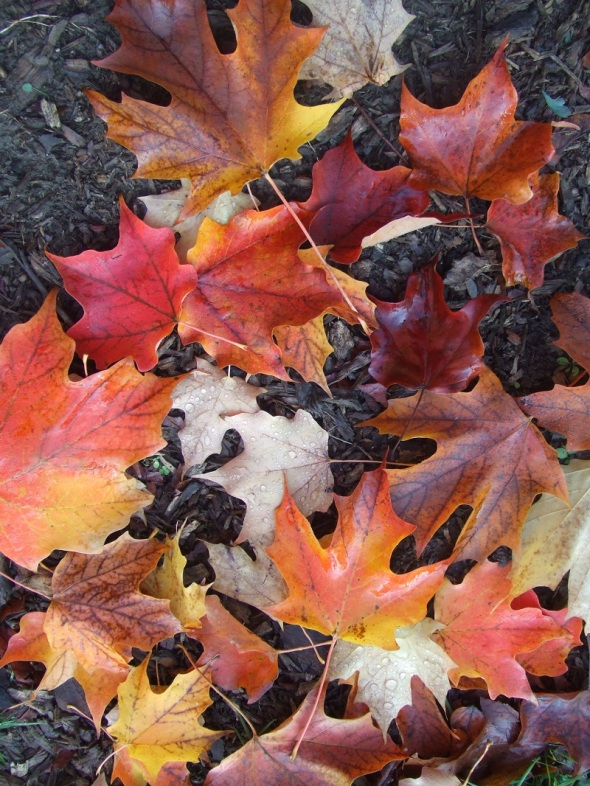![ZP_Rufino Tamayo_Mujer llamando / Woman calling_1941]() ZP_Rufino Tamayo_Mujer llamando / Woman calling_1941
ZP_Rufino Tamayo_Mujer llamando / Woman calling_1941
.
Rosario Castellanos (1925-1974)
“The Other”
.
Why speak the names of gods, stars,
foams of a hidden sea,
pollen of the farthest gardens,
when what hurts us is life itself, when each new day
claws at our guts, when every night falls
writhing, murdered?
When we feel the pain in someone else,
a man we do not know but who is always
present and is the victim
and the enemy and love and everything
we’d need to be whole?
Never lay claim to the dark,
don’t drain the cup of joy in a single sip.
Look around: there is someone else, always someone else.
What he breathes is your suffocation,
what he eats is your hunger.
Dying, he takes with him the purest half of your own death.
. . .
“El otro”
.
¿Por qué decir nombres de dioses, astros,
espumas de un océano invisible,
polen de los jardines más remotos?
Si nos duele la vida, si cada día llega
desgarrando la entraña, si cada noche cae
convulsa, asesinada.
Si nos duele el dolor en alguien, en un hombre
al que no conocemos, pero está
presente a todas horas y es la víctima
y el enemigo y el amor y todo
lo que nos falta para ser enteros.
Nunca digas que es tuya la tiniebla,
no te bebas de un sorbo la alegría.
Mira a tu alrededor: hay otro, siempre hay otro.
Lo que él respira es lo que a ti te asfixia,
lo que come es tu hambre.
Muere con la mitad más pura de tu muerte.
. . .
“Origin”
.
I am growing on a woman’s corpse,
my roots wrap themselves around her bones
and from her disfigured heart
a stalk emerges, vertical and tough.
.
From the bier of an unborn child:
from her womb cut down before the harvest
I rise stubborn, definitive,
brutal as a tombstone and sad at times
with the stony sadness of the funeral angel
who hides a tearless face between his hands.
. . .
“Origen”
.
Sobre el cadáver de una mujer estoy creciendo,
en sus huesos se enroscan mis raíces
y de su corazón desfigurado
emerge un tallo vertical y duro.
.
Del ferétro de un niño no nacido:
de su vientre tronchado antes de la cosecha
me levanto tenaz, definitiva,
brutal como una lápida y en ocasiones triste
con la tristeza pétrea del ángel funerario
que oculte entre sus manos una cara sin lágrimas.
. . .
“Nocturne”
.
Time is too long for life;
for knowledge not enough.
.
What have we come for, night, heart of night?
.
All we can do is dream, or die,
dream that we do not die
and, at times, for a moment, wake.
. . .
“Nocturno”
.
Para vivir es demasiado el tiempo;
para saber no es nada.
.
¿A qué vinimos, noche, corazón de la noche?
.
No es posible sino soñar, morir,
soñar que no morimos
y, a veces, un instante, despertar.
. . .
“Elegy”
.
Body, belovéd, yes; we know each other, you and I.
.
Perhaps I ran to meet you
like a cloud heavy with lightning.
.
Ah, that fleeting light, that fulmination,
that vast silence that succeeds catastrophe.
.
Whoever looks at us now (dark stones, bits
and pieces of used matter)
won’t know that for an instant our name was love
and that in eternity they call us destiny.
. . .
“Elegía”
.
Cuerpo, criatura, sí; tú y yo, nos conocimos.
.
Tal vez corrí a tu encuentro
como corre la nube cargada de relámpagos.
.
Ay, esa luz tan breve, esa fulminación,
ese vasto silencio que sigue a la catástrofe.
.
Quienes ahora nos miran
(piedras oscuras, trozos de matería ya usada)
no sabrán que un instante nuestro nombre fue amor
y que en la eternidad nos llamamos destino.
. . .
“Indifference”
.
He looked at me as one looks through a window
or the air
or nothing.
.
And then I knew: I was not there
or anywhere
nor had I ever been or would be.
.
I became like one who dies in an epidemic,
unidentified, and is hurled
into a common grave.
![ZP_Rufino Tamayo_El grito / The shout_1947]() ZP_Rufino Tamayo_El grito / The shout_1947
ZP_Rufino Tamayo_El grito / The shout_1947
.
“Desamor”
.
Me vió como se mira al través de un cristal
o del aire
o de nada.
.
Y entonces supe: yo no estaba allí
ni en ninguna otra parte
ni había estado nunca ni estaría.
.
Y fui como el que muere en la epidemia,
sin identificar, y es arrojado
a la fosa común.
. . .
“Nymphomania”
.
I held you in my hands:
all mankind in a walnut.
.
What a hard, wrinkled shell!
.
And inside, the simulacrum
of the two halves of the brain,
which obviously aspire not to work
but to be devoured and praised
for their neutral, unsatisfying taste
that endlessly demands,
over and over and over, to be tried again.
. . .
“Ninfomanía”
.
Te tuve entre mis manos:
la humanidad entera en una nuez.
.
¡Qué cáscara tan dura y tan rugosa!
.
Y, adentro, el simulacro
de los dos hemisferos cerebrales
que, obviamente, no aspiran a operar
sino a ser devorados, alabados
por ese sabor neutro, tan insatisfactorio
que exige, al infinito,
una vez y otra y otra, que se vuelva a probar.
. . .
“Speaking of Gabriel”
.
Like all guests my son got in the way,
taking up space that was my space,
existing at all the wrong times,
making me divide each bite in two.
.
Ugly, sick, bored,
I felt him grow at my expense,
steal the colour from my blood, add
clandestine weight and volume
to my way of being on the earth.
.
His body begged for birth, begged me to let him pass,
allot him his place in the world
and the portion of time he needed for his history.
.
I agreed. And through the wound of his departure,
through the hemorrhage of his breaking free,
the last I ever felt of solitude, of myself
looking through a pane of glass, also slipped away.
.
I was left open, an offering
to visitations, to the wind, to presence.
![ZP_Rufino Tamayo_Pregnant Woman_1976]() ZP_Rufino Tamayo_Mujer embarazada / Pregnant Woman_1976
ZP_Rufino Tamayo_Mujer embarazada / Pregnant Woman_1976
.
“Se habla de Gabriel”
.
Como todos los huéspedes mi hijo me estorbaba
ocupando un lugar que era mi lugar,
existiendo a deshora,
haciéndome partir en dos cada bocado.
.
Fea, enferma, aburrida
lo sentía crecer a mis expensas,
robarle su color a mi sangre, añadir
un peso y un volumen clandestino
a mi modo de estar sobre la tierra.
.
Su cuerpo me pidió nacer, cederle el paso,
darle un sitio en el mundo,
la provisión de tiempo necesaria a su historia.
.
Consentí. Y por la herida en que partió, por esa
hemorragia de su desprendimiento
se fue también lo último que tuve
de soledad, de yo mirando tras de un vidrio.
.
Quedé abierta, ofrecida
a las visitaciones, al viento, a la presencia.
. . .
“Meditation on the Threshold”
.
No, throwing yourself under a train like Tolstoy’s Anna
is not the answer,
nor hastening Madame Bovary’s arsenic
nor waiting for the angel with the javelin
to reach the parapets of Avila
before you tie the kerchief to your head
and begin to act.
.
Nor intuiting the laws of geometry,
counting the beams in your cell
like Sor Juana. The answer is not
to write while visitors arrive
in the Austen living room
nor to lock yourself in the attic
of some New England house
and dream, the Dickinson family Bible
beneath your spinster’s pillow.
.
There must be some other way whose name is not Sappho
or Mesalina or Mary of Egypt
or Magdalene or Clemencia Isaura…
.
Another way of being free and human.
.
Another way of being.
. . .
“Meditación en el umbral”
.
No, no es la solución
tirarse bajo un tren como la Ana de Tolstoi
ni apurar el arsénico de Madame Bovary
ni aguardar en los páramos de Ávila la visita
del ángel con venablo
antes de liarse el manto a la cabeza
y comenzar a actuar.
.
No concluir las leyes geométricas, contando
las vigas de la celda de castigo
como lo hizo Sor Juana. No es la solución
escribir, mientras llegan las visitas,
en la sala de estar de la familia Austen
ni encerrarse en el ático
de alguna residencia de la Nueva Inglaterra
y soñar, con la Biblia de los Dickinson
debajo de una almohada de soltera.
.
Debe haber otro modo que no se llame Safo
ni Mesalina ni María Egipciaca
ni Magdalena ni Clemencia Isaura.
.
Otro modo de ser humano y libre.
.
Otro modo de ser.
![ZP_Rufino Tamayo_Mujer alcanzando la luna / Woman reaching for the moon_1946]() ZP_Rufino Tamayo_Mujer alcanzando la luna / Woman reaching for the moon_1946
ZP_Rufino Tamayo_Mujer alcanzando la luna / Woman reaching for the moon_1946
“Poetry Is Not You”
.
Because if you existed
I’d have to exist too. And that’s a lie.
.
There is nothing more than ourselves: the couple,
two sexes reconciled in a chile,
two heads together, not contemplating each other
(so as not to turn either one into a mirror)
but staring straight ahead, at the other.
.
The other: mediator, judge, equilibrium
of opposites, witness,
knot in which what was broken is retied.
.
The other, muteness that begs a voice
from the one who speaks
and demands the ear of the one who listens.
.
The other. With the other,
humanity, dialogue, poetry, begin.
. . .
“Poesía no eres tú”
.
Porque si tú existieras
tendría que existir yo también. Y eso es mentira.
.
Nada hay más que nosotros: la pareja,
los sexos conciliados en un hijo,
las dos cabezas juntas, pero no contemplándose
(para no convertir a nadie en un espejo)
sino mirando frente a sí, hacia el otro.
.
El otro: mediador, juez, equilibrio
entre opuestos, testigo,
nudo en el que se anuda lo que se había roto.
.
El otro, la mudez que pide voz
al que tiene la voz
y reclama el oído del que escucha.
.
El otro. Con el otro
la humanidad, el diálogo, la poesía, comienzan.
. . .
“Livid Light”
.
I can only speak of what I know.
.
Like Thomas, my hand is deep
inside a wound. And it hurts both the other and myself.
.
Cold sweat of agony!
Convulsion of nausea!
.
No, I don’t want comfort of oblivion or hope.
.
I want the courage to remain,
to not betray what is ours: this day
and the light that lets us see it whole.
. . .
“Lívida luz”
.
No puedo hablar sino de lo que sé.
.
Como Tomás tengo la mano hundida
en una llaga. Y duele en el otro y en mí.
.
¡Ah, qué sudor helado de agonía!
¡Qué convulsión de asco!
.
No, no quiero consuelo, ni olvido, ni esperanza.
.
Quiero valor para permanecer,
para no traicionar lo nuestro: el día
presente y esta luz con que se mira entero.
.
.
.
Translations from Spanish into English © Magda Bogin
. . . . .
Mexican journalist Elena Poniatowska (born 1933) has said of Rosario Castellanos (1925-1974) that her 1950 UNAM thesis on “la cultura feminina” was the intellectual starting point for the liberation of Mexican women. Writer José Emilio Pacheco wrote of that period, the early 1950s, that “at that time, no-one in this country [México] was so clearly aware of her double status – as a woman and as a Mexican – nor did anyone else make of this awareness the very material of her writing, the central thread of her work.” And: “Our sight was obscured by conventional notions; we were on guard in defence of our privileges…Naturally we did not know how to read her.”
Castellanos was intensely feminist yet self-critical – she wrote unsparingly about her circumstances and her limitations. There was a kind of raw heroism in this, and it earned her the misunderstanding and mockery of a primarily male literary world. Her poem “Speaking of Gabriel” would’ve shocked readers with its grudging acquiescence to Motherhood that then surprises in the final verse with a beautiful fragile spirit. “Poetry Is Not You” – its title a direct contradiction to Gustavo Adolfo Bécquer’s famous 19th-century Romantic poem, Poesía eres tú (Poetry is You!), begins with the words “Because if you existed I’d have to exist too. And that’s a lie.” – indicating that this will be no doving-and-coo-ing couple to be described – and then, like “Speaking of Gabriel” – surprises with a powerful change by poem’s end – that of recognizing that a woman, as too her husband, does not wish to be turned into a “mirror” rather to be understood, hard as that is to do, as “the other”. “With the other, humanity, dialogue, poetry, begin.”
.
As a neglected yet keenly observant child of a coffee plantation family in Chiapas, Castellanos would come to the realization by the mid-1950s that “everything she had once accepted as the natural order of things stood revealed in its true light, and as a result of that discovery she saw that certain moral and intellectual attitudes were required of her.” The substantial acreage of coffee lands she’d inherited she then returned to the very Indios (Tzotzil Mayans) who’d tilled it for her family; and she went to work for the National Indigenous Institute in San Cristóbal de las Casas. Two of Castellanos’ novels – Balún Canán and Oficio de Tinieblas – deal sensitively with Native-American “characterization” and culture. Eventually she re-settled in México City where she wore a variety of writerly hats, including penning newspaper columns for Novedades, ¡Siempre!, and Excélsior.
.
The poem “Nocturne”, with its elliptical last verse – “All we can do is dream, or die, dream that we do not die and, at times, for a moment, wake” – follows very closely the Náhuatl (Aztec language) ideal of the moyolnonotzani (a person who knows how to converse with her own heart) and the hayoltehuani (the artist who is able to introduce the symbolism of the divine into things). The loneliness that gripped Castellanos throughout her life – even her marriage to Ricardo Guerra in 1957 was defined by feelings of profound loss (two miscarriages before the birth of their son, Gabriel); and depression caused by the strictures of her “role” as wife and mother (divorce was to be the outcome) – nonetheless made for perceptive, nuanced poetry which, in the above translations by Magda Bogin, from 1988, at last became available to English-language readers.
(With biographical notes / quotations cited from Cecilia Vicuña)
. . . . .
![]()










































































